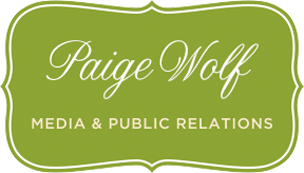Last month Philadelphia had the highest amount of rainfall in recorded history. That same month, the ground literally shook beneath our feet. It was the first earthquake many of us have felt in our lifetime. A few days later we were battening the hatches for Hurricane Irene.
These wicked weather patterns only add to the worries of the eco-anxious, who were already agonizing over BPA, PVCs, and – oh yeah, maybe our kids learning their ABCs.
When I first wrote Spit That Out: The Overly Informed Parent’s Guide to Raising Children in the Age of Environmental Guilt in early 2010, I confessed guilt surrounding disposable diapers, shopping at Target, pre-packaged Perdue chicken strips, and bejeweled footwear.
I’m pleased to say that in the past year I’ve been able to phase out most of these eco-inadequacies – apart from the shoes.
However, I have let my son eat an exorbitant amount of birthday cake, stressed over the Lysol sprayed in my toddler’s preschool bathroom, and spent countless hours and dollars on the search for the perfect, safe, leak-free, unbreakable sippy cup. And when it feels like the rain just won’t stop, it can feel hard to put on a sunshine face for our children.
In my book, I talk to experts in the growing new form of psychology called “eco-therapy.” These experts offer advice to help enforce the importance of modeling behavior, as well as trusting our instincts and applauding ourselves for small changes.
When I feel like if I read one more study about toxic toys or tainted food I’ll completely lose my mind, I try to remember a few mantras.
“Just because you can’t do everything doesn’t mean you should do nothing.”
Unfortunately, I forget who said this to me because they are owed due credit for such a simple but important idea. Some people refuse to make small changes because they are so overwhelmed by feeling like there’s just too much to do. But just because you can’t figure out how to compost doesn’t mean you shouldn’t recycle. Just because you can’t make fresh, organic meals every night doesn’t mean you have to succumb to a pattern of take-out. It’s OK to just “do what’s doable” and make small changes as you go along. Hey, it took me 20 months before I got around to cloth diapering!
“Lead by example. We can’t control the world around us, but we can control what we do in our own space.”
This is a tough one for me when I want to report every office building without a recycling program. And I think that’s OK to do – we should be tattletales if we want to enforce real change. But we can’t control the decisions of other people, no matter how Type A we are. I try to remember that as long as I have the power to make decisions in my own home, I have to accept sending my son out into the big scary world of other peoples’ rubber ducks.
“We need to feel reassured that what we do does make a difference.”
In her book Bag Green Guilt, Five Easy Steps: Turn Eco-Anxiety Into Constructive Energy, Jen Pleasants suggests picking onething to do that is “green” that you aren’t already doing and start doing that one thing this week. Do that one thing well. You’ll feel better doing one thing well than eight things poorly.
She also underlines the power of praise. Say something positive to yourself, your family, your friends, your community, your company, or your country whenever a step is taken in the right direction.
And with all of this, there is a bright side: the growing sense of community due to awareness of the environmental devastation.
Through this sense of community and possibility, it becomes plausible to see the glass as half full. The growing awareness of a planet in peril has literally made us stop and smell the roses. Suddenly, we all know what Joni Mitchell was talking about when she said, “They paved paradise and put up a parking lot.”
The green movement has been more than a call to arms to protect the planet, question consumerism, and take stock of our health. The backlash against materialism has brought a return to simplicity, offering a welcome respite from our multitasking smart phones as we make time to embrace growing our own basil and hemming our own skirts.
For all its intentions to offer “better living through chemistry” and information superhighways, the new world we live in takes a lot more than a GPS to navigate. But the plus side is that information is power. And while the choices aren’t simple, at least we have the knowledge to make better – if not perfect – decisions.
And that leads me to my final mantra, what I always inscribe in my books.
“Perfect is unattainable. But better is always possible.”












